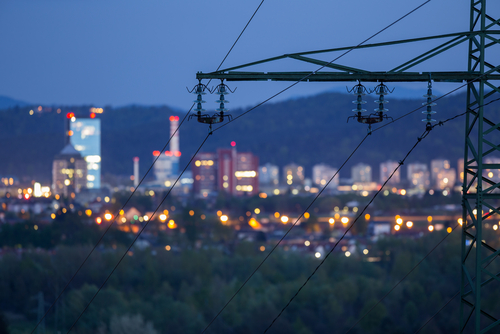
U.S. Sen. Jim Risch (R-ID), the chairman of the Energy and Natural Resources Subcommittee on Energy, chaired a hearing on the Securing Energy Infrastructure Act, S. 3018, and to examine protections designed to guard against energy disruptions last week.
“In the United States, we too often we take our grid’s dependability and security for granted – as you scan across the globe, no other network is able to provide as much reliable and affordable power as our American grid system,” Risch said. “Far too often, it is not until the lights go dark that we truly take time to consider the grid.
“It is only after a disruption that we consider how to prevent them.”
The Securing Energy Infrastructure Act, introduced by U.S. Sen. Angus King (I-ME) with Risch and U.S. Sens. Martin Heinrich (D-NM), and Susan Collins (R-ME), seeks to protect critical U.S. energy infrastructure, like the electric grid, from potentially catastrophic attacks.
“This legislation would establish a two-year pilot program within the National Laboratories to examine ways to replace automated systems with manual procedures to remove vulnerabilities that could allow cyber criminals to access the grid through holes in digital software systems,” Risch said. “This legislation ensure that we take the necessary steps to defend ourselves against potentially catastrophic threats by establishing a coordinated effort to help protect essential infrastructures.”
Patricia Hoffman, assistant secretary at the Office of Electricity Delivery and Energy Reliability, said that the nation’s economy and security, as well as the health and safety of its citizens, depends on the reliable delivery of electricity.
“The mission of the Office of Electricity Delivery and Energy Reliability is to strengthen, transform and improve energy infrastructure to ensure access to reliable, secure and clean sources of energy,” Hoffman said. “We are committed to working with our public and private sector partners to protect the nation’s critical energy infrastructure, including the electric power grid.”
Hoffman added that such partnerships are integral because intentional and malicious challenges to energy systems in the U.S. are on the rise.
“We are seeing threats continually increase in numbers and sophistication,” Hoffman said. “This evolution has profound impacts on this sector, which is why we’ve made cyber security one of our highest priorities at DOE.
“As there has been an increase in malicious cyber activity, we work closely with the energy sector to share cyber threat information.”
Despite the rising number of threats against the system, Duane D. Highley, president and CEO of the Arkansas Electric Cooperative Corporation said that the grid remains “incredibly resilient.”
“Imagine the worst ice storm – thousands of poles and wires down – and even in these severe cases, service is usually restored in days or, at most, a couple of weeks – longer outages are extremely unlikely.
“From drafting plans, to coordinating with our partners, private sector and government alike, to assessing and mitigating risks, including building in a multitude of redundancies, we are continuously working to ensure outage times are minimal if and when they do occur.”




